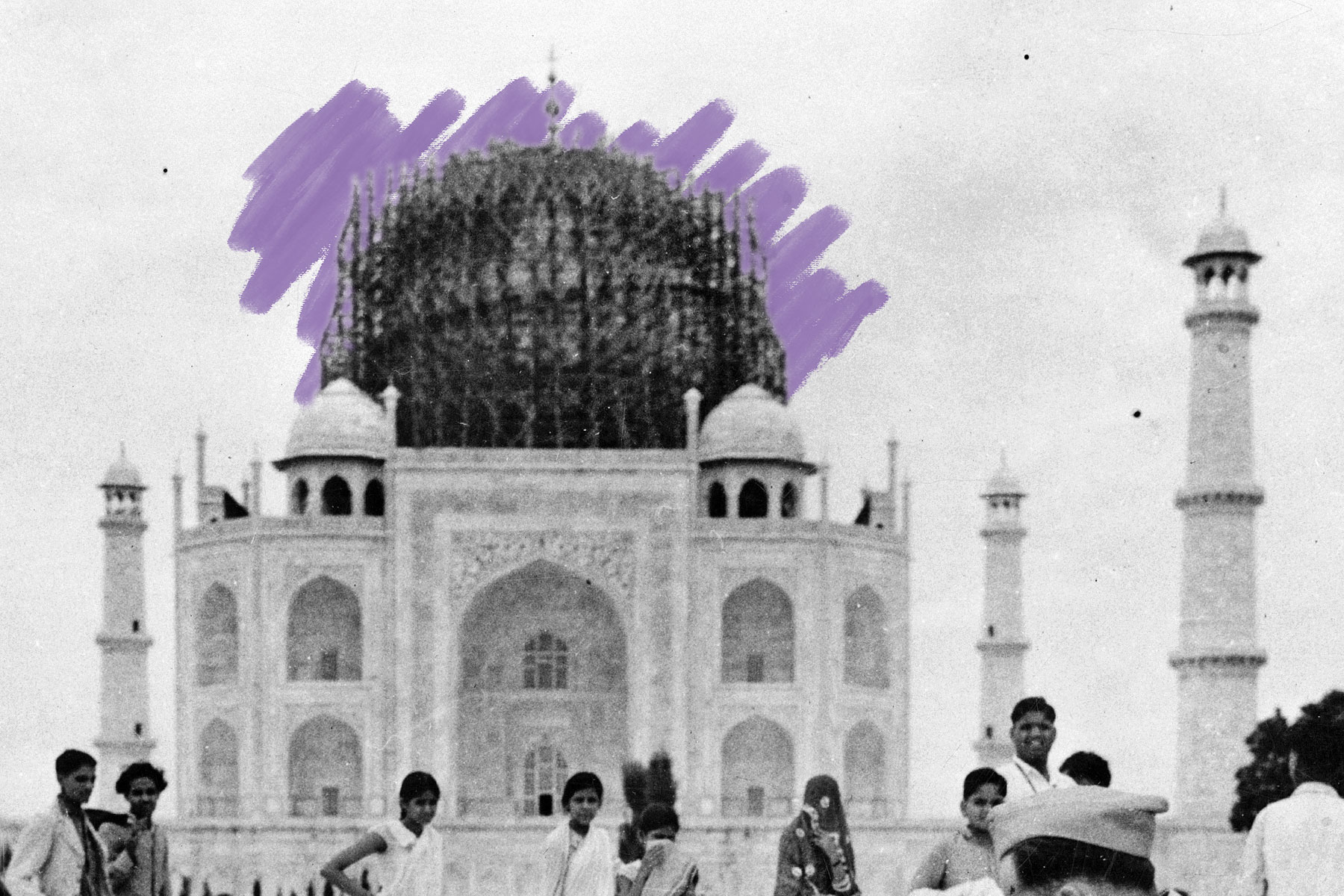| I ndia's Taj Mahal was built by Mughal Emperor Shah Jahan, in memory of his wife Mumtaz Mahal. Construction on the emperor's vision started in 1632 CE and continued in phases until 1653. Ever since, the mausoleum has stood as an artistic and architectural marvel, its symmetrical design topped with the famous white marbled dome. The centerpiece feature is so distinct, in fact, that during World War II, it was disguised for security reasons. |
|
| In 1942, amid fear of potential air raids, the British army used bamboo to cover the Taj Mahal's dome, attempting to make the onion-shaped design resemble nothing more than a pile of vegetation. Bamboo is known for its lightweight, durable, and flexible properties, and it happens to grow abundantly in India. Still, the subterfuge was no small feat: An elaborate scaffolding system was built around the entirety of the dome, which is almost 200 feet tall. The dome was successfully camouflaged, the plant not only protecting the famous silhouette, but also dimming its gleaming white marble that, when bathed in bright moonlight, shines like a beacon in the dark. |













No comments:
Post a Comment